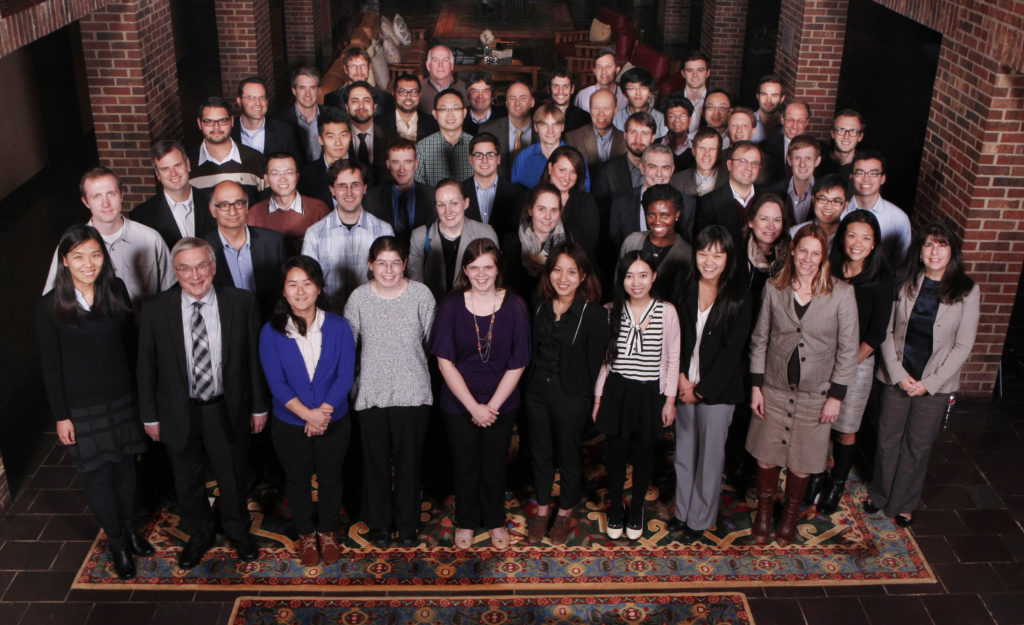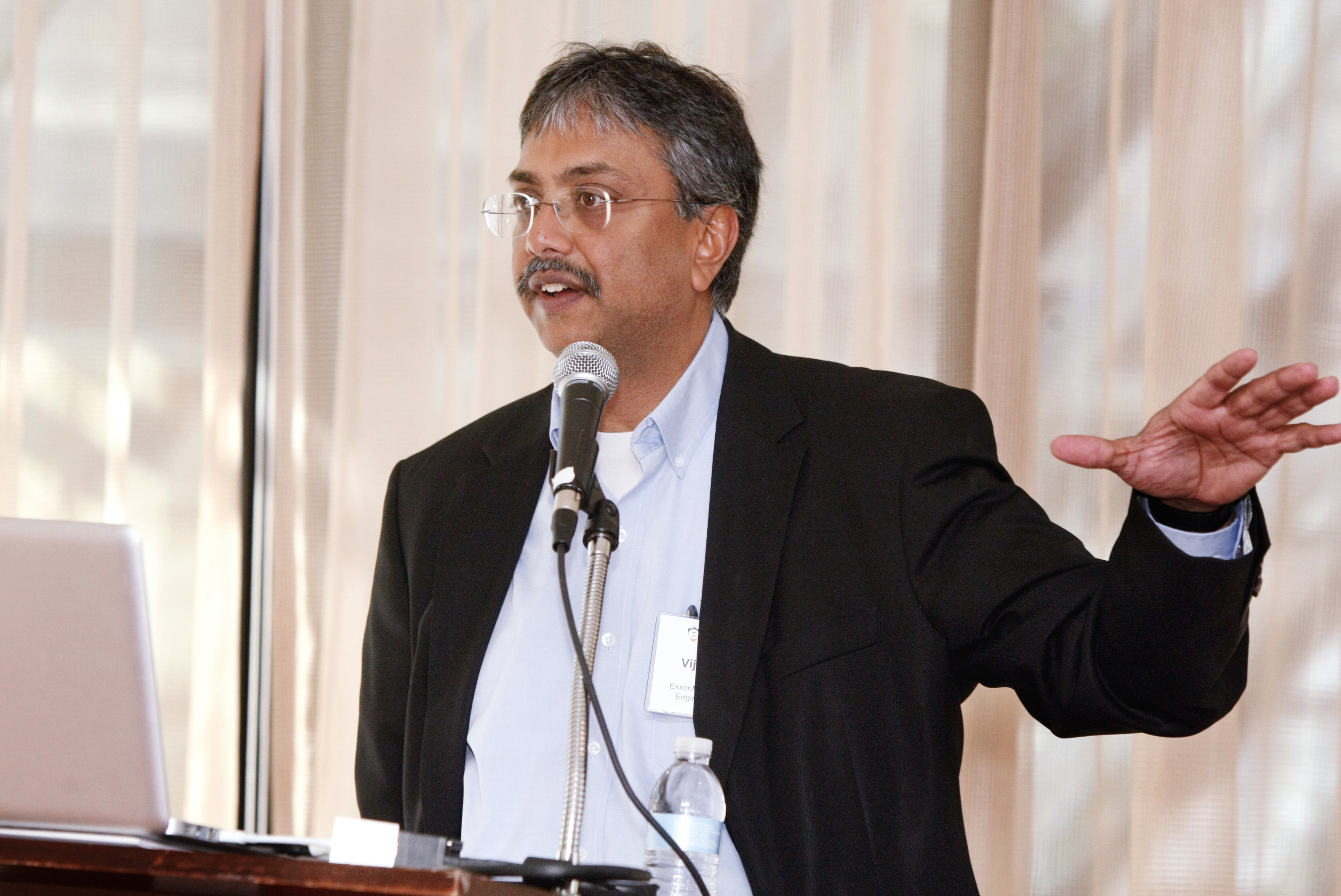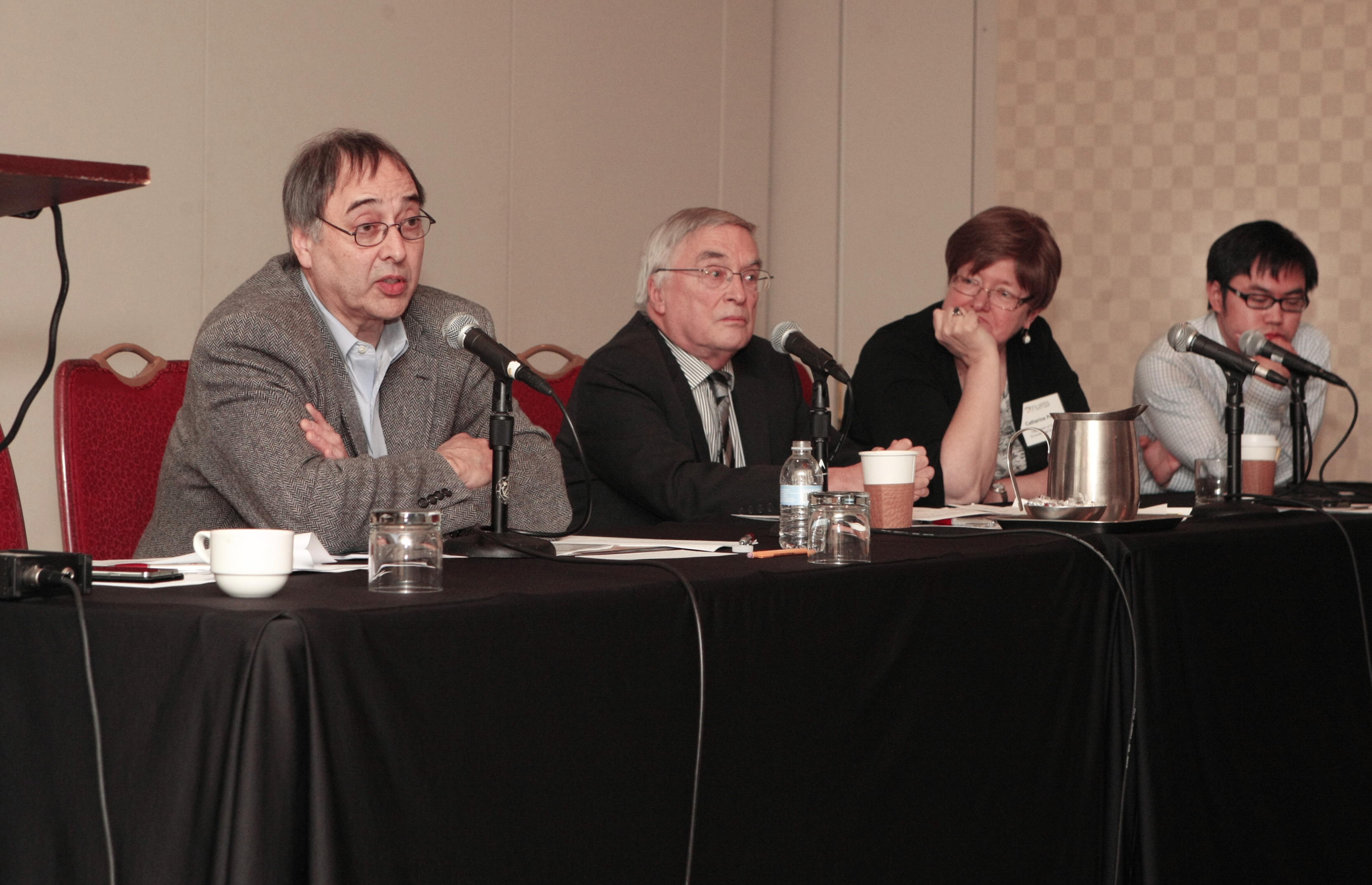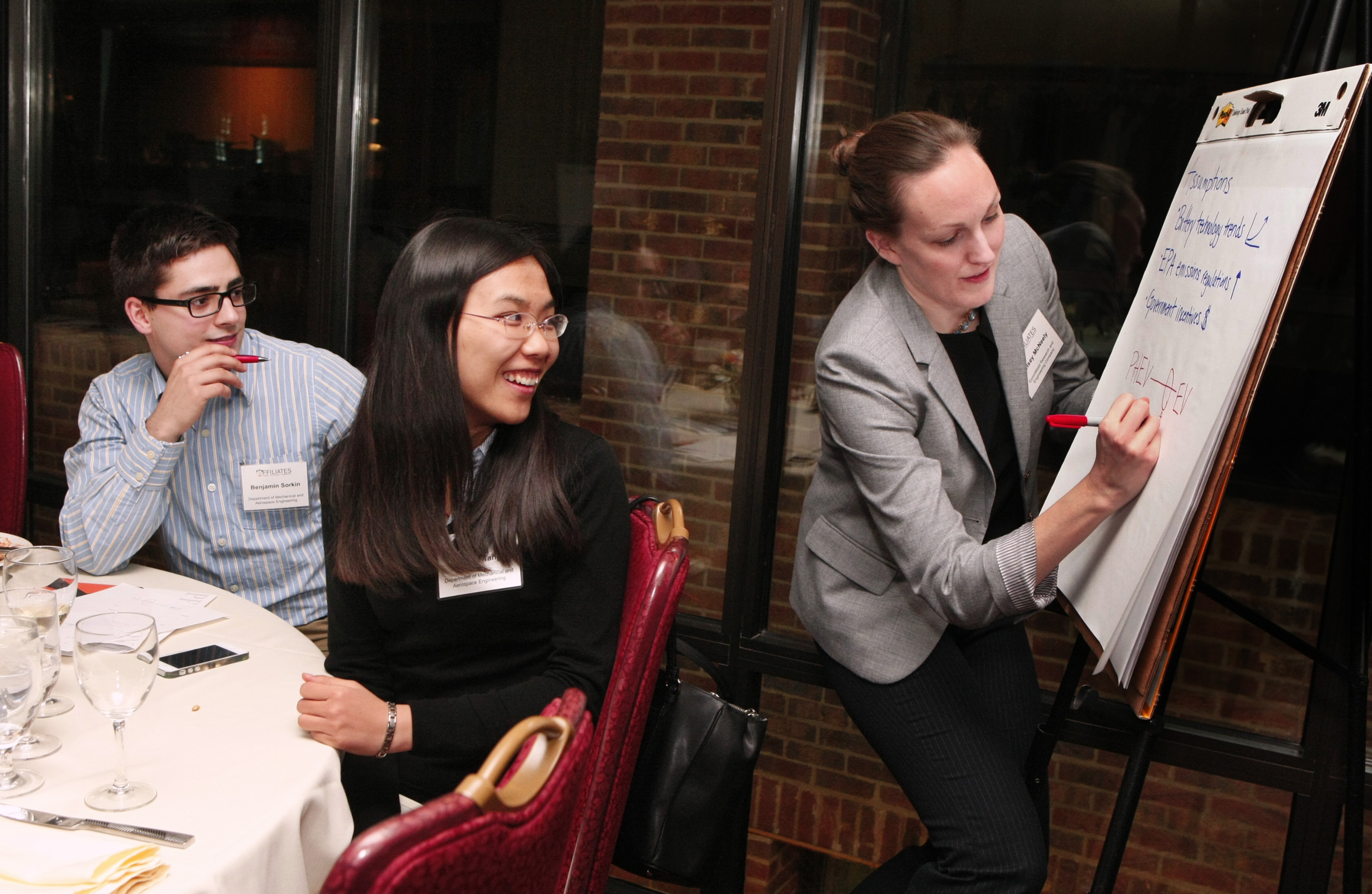
Princeton E-ffiliates Partnership held a two-day retreat where faculty, researchers, postdoctoral fellows, students, and industry partners engaged in wide-ranging discussions on energy and its future. This group photograph shows many of the participants who attended the event. Princeton University’s Andlinger Center for Energy and the Environment (ACEE) administers E-ffiliates, a program that sparks transformational innovations in energy and environmental technologies via close collaborations between academic experts and industry leaders. (Photograph by Frank Wojciechowski)
By Sharon Adarlo
From speculating on the evolution of electric vehicles to technical talks on the outlook for oil and gas and how to realize a carbon-neutral future, faculty, researchers, postdoctoral fellows, students, and industry partners engaged in wide-ranging discussions on energy and its future during Princeton E-ffiliates Partnership’s recent two-day retreat.
“The retreat is a wonderful opportunity to connect researchers and our industrial partners in open, informal dialogue. The ultimate goal is to reach a carbon-neutral world and we need to approach this issue with an all-hands-on-deck mentality that transcends professional borders,” said Emily Carter, founding director of Princeton University’s Andlinger Center for Energy and the Environment (ACEE), which administers E-ffiliates, a program that sparks transformational innovations in energy and environmental technologies via close collaborations between academic experts and industry leaders.
Held at the Princeton Marriott at Forrestal in January, this year’s retreat included faculty, researchers, postdocs, and students from ACEE and numerous academic departments who, alongside corporate members, took part in panel sessions, a scientific challenge, a poster session, and informal discussions. Daniel Steingart, assistant professor of mechanical and aerospace engineering and the ACEE, led the event’s proceedings.

Vijay Swarup, vice president of research and development for ExxonMobil Research and Engineering Company, presented ExxonMobil’s “Energy Outlook: A View to 2040” as part of his keynote address at the event.(Photograph by Frank Wojciechowski)
The event kicked off with an overview of energy’s future in a keynote address given by Vijay Swarup, vice president of research and development for ExxonMobil Research and Engineering Company. Swarup presented ExxonMobil’s “Energy Outlook: A View to 2040,” a broad and thoughtful analysis of anticipated long-term global energy demand and supply, the rise of developing countries and their increasing consumption of energy, the impact of emerging renewable technologies, and how the world will consume energy in the next 25 years. Swarup also highlighted the importance of technology in expanding global fuel production and of energy conservation and efficiency.
The retreat continued with a panel session that contemplated the challenges presented by the combustion of fossil fuels, and analyzed the effectiveness of carbon capture and sequestration and sustainable energy technologies. A second panel session focused on how to achieve the goal of a carbon-neutral future and addressed challenges in implementing effective policies, the state of the nation’s electricity grid, and how Princeton University, which operates its own “microgrid,” is playing a role by providing a reliable and cost-effective electricity system.

A panel session on the future of oil was part of the event’s program. From left to right on the panel: Michael G. Matturro – Laboratory Director, Hydrocarbon and Emerging Energy Science, Corporate Strategic Research, ExxonMobil Research & Engineering Company; Robert Williams – Senior Research Scientist, Energy Systems Analysis Group, Andlinger Center for Energy and the Environment at Princeton; Catherine Peters – Professor of Civil and Environmental Engineering and Director of the Program in Geological Engineering at Princeton; Bo Guo – graduate student, Department of Civil and Environmental Engineering at Princeton. (Photograph by Frank Wojciechowski)
Additionally, attendees engaged in a scientific challenge where Steingart asked guests to brainstorm what electric vehicles would look like in the future. Working together in groups, attendees justified how they envisioned the dominant car/truck topology in 2040. Ideas included hybrid cars that resemble the ones being driven today, specially-built roadways that would continuously charge electric vehicles, and even more fantastical concepts.
“We went from the conservative to science fiction: from hybrid cars, such as the Prius, to the flux capacitor,” said Steingart, referring to the core component of the DeLorean time machine used in the movie, “Back to the Future.”

At the retreat, attendees engaged in a scientific challenge to brainstorm what electric vehicles would look like in the future. (Photograph by Frank Wojciechowski)
Postdoctoral researchers and graduate and undergraduate students networked with corporate members and faculty and presented their research findings during a poster session. Research topics included synthetic microbes designed for sustainable energy applications, energy efficient building skins, biofuels, battery storage, carbon sequestration, sensor techniques, and renewable sources of energy.
Paul Chirik, ACEE’s associate director for external partnerships, noted, “This was a special opportunity for students, faculty, researchers, and industrial partners to interact and exchange ideas, and they did. Events such as these are so important because corporate involvement is vital to the mission of the Andlinger Center and E-ffiliates. Research needs to make a leap from the lab and into the real world and that requires continuous collaboration and discussion among various science and engineering disciplines and industry.”